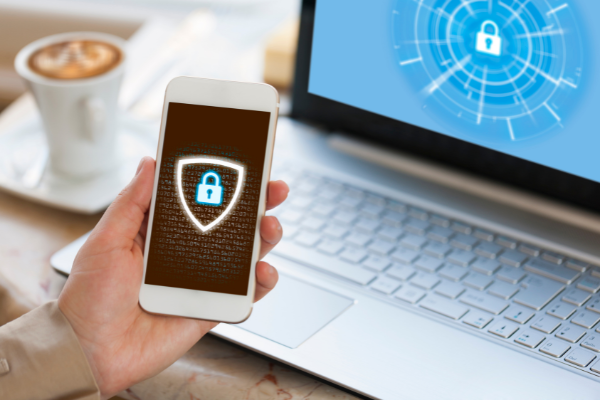Cybersecurity 101: Tips for Staying Safe Online

With the internet becoming a part of our everyday life, protecting ourselves online has become an important issue. We are constantly being exposed to potential threats like phishing scams, malware, and hacking attempts and it can feel overwhelming knowing how to keep yourself secure. If you want to learn more about maintaining your personal information safe while navigating the world wide web, then this post is for you!
In Cybersecurity 101: Tips for Staying Safe Online, we will cover steps you can take such as understanding basic terminology, setting up two-factor authentication, and utilizing encryption software – all in order to help protect your data from malicious attackers. As we walk through these tips together, you’ll gain insight into how easy (and necessary!) cyber safety really is. So let’s get started on building a digital fortress!
Contents
Use strong passwords and don’t reuse them across multiple accounts
In this day and age, using strong passwords and ensuring that they are not reused across multiple accounts is more important than ever. With the rise of cyber-attacks and data breaches, it is crucial to protect our personal information as best as we can. Creating a strong password doesn’t have to be complicated – simply use a combination of uppercase and lowercase letters, numbers, and symbols.
And while it may be tempting to use the same password for all of your accounts, it’s important to resist that urge. Why give hackers an open door to your entire digital life? By taking a few extra moments to create unique, strong passwords for each account, you’ll be doing yourself a huge favor in the long run.
Explore more: https://thesbb.com/the-role-of-blockchain-in-fintech/
Enable two-factor authentication to secure your accounts even further
In today’s digital age, protecting your online accounts is more important than ever. While many people opt for strong passwords, there is another layer of security that can provide even greater protection: two-factor authentication. By enabling this feature, you not only need to remember your password but also have your phone or another registered device on hand to confirm your identity.
This powerful tool can help safeguard sensitive information such as credit card details and account balances from cyber criminals. So don’t leave your online security up to chance—set up two-factor authentication today and enjoy peace of mind knowing your accounts are locked down tight.
Be careful of phishing emails, look out for suspicious links or attachments
The internet has brought with it countless conveniences and opportunities, but unfortunately, it has also opened up Pandora’s box when it comes to malicious content. One of the most common and dangerous ways that hackers and scammers can compromise your security is through phishing emails. These emails are designed specifically to trick you into divulging sensitive information or downloading harmful software.
To protect yourself, always be on the lookout for suspicious links or attachments, and never click on anything that seems even remotely fishy. A single click can be all it takes to give hackers access to your personal information, so be vigilant and stay safe online.
Always be aware of the websites you visit – avoid clicking on any ads or pop-ups that seem suspicious
The internet is an amazing resource, but it’s important to always be cautious when visiting websites. Some ads and pop-ups can seem tempting, but it’s crucial to avoid clicking on anything that appears suspicious. Cybercriminals are always finding new ways to steal personal information, and these seemingly harmless ads can often be a trap. Make sure to keep your online safety a top priority by being aware of the websites you visit and taking extra precautions when encountering ads or pop-ups. With a little bit of caution and awareness, you can stay safe while browsing the web.
Regularly update your computer software and anti-virus program to stay ahead of the curve
In today’s digital age, keeping your computer running smoothly is essential to your daily life. One key factor in maintaining your computer’s health is updating your software and anti-virus programs regularly. Updating your software can bring new features and bug fixes to your programs, while an up-to-date anti-virus program can protect your computer from potential threats.
With cyber-attacks on the rise, staying ahead of the curve with the latest software and anti-virus updates is more important than ever. By regularly updating your computer, you can ensure that it is running smoothly and securely, providing you with peace of mind in the fast-paced world of technology.
Also read: https://4howtodo.com/how-data-science-is-transforming-marketing/
Back up your data regularly in case something goes wrong with your computer system
Losing important documents, cherished photos, and other precious files due to computer malfunction or theft can be devastating. That’s why it’s crucial to back up your data regularly. With a simple and easy-to-use backup system, you can secure your files and ensure that they are never lost.
Whether you prefer an external hard drive, cloud storage, or a combination of both, taking the time to create a regular backup routine can save you from headaches and heartaches in the long run. Don’t wait until it’s too late – start backing up your data today!
Conclusion
Home cyber security is essential in this digital world. It takes only a few steps to increase your protection and safeguard yourself and your loved ones from potential hacking, phishing, and other malicious activity. From using strong passwords that you change frequently to upgrading your software regularly so it can stay ahead of the curve, these are simple steps to ensure that you keep ahead of evolving cyber threats.
Don’t underestimate the importance of staying vigilant when it comes to online safety – by taking the necessary precautions and being aware of the risks associated with online activities, you can make sure to protect yourself from any form of cyber attack. With today’s technology at our fingertips, staying safe and secure should be a priority for everyone.






